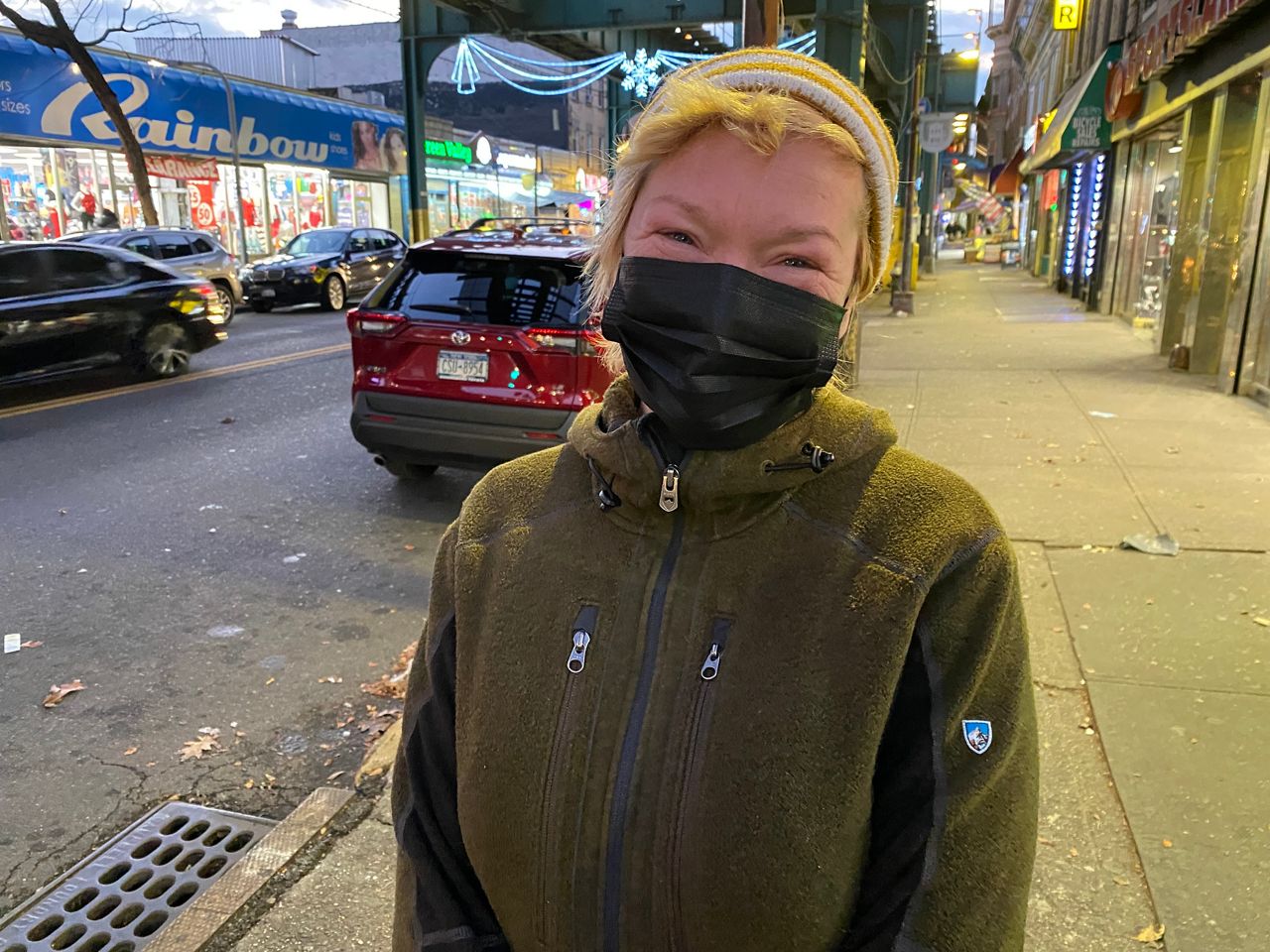NEW YORK — Alison Gibney says she and others who are currently being housed at group setting shelters in the city are growing more nervous as COVID-19 cases increase.
“We have followed all of their guidelines, got their vaccinations, got our boosters, we’re wearing our masks, we're washing our hands, we’re trying to maintain distance, but that is simply impossible in a room with 15 women at night,” Gibney said.
What You Need To Know
- Alison Gibney says she and others who are currently being housed at group shelters in the city are growing more nervous as COVID-19 cases increase
- Last year, the mayor moved more than 8,000 people from group settings in shelters to 60 hotels around the city for their safety
- The move was fraught, with protest from residents and lawsuits from advocates for homeless New Yorkers once the mayor decided to return individuals to shelters last summer
- Advocates say with the increase in omicron cases, the city should once again provide single-occupancy rooms for all; de Blasio says this situation is different
Gibney said the city a year-and-a-half ago placed her in hotel in Brownsville, Brooklyn, but last month she was moved into a shelter in College Point, Queens.

Mayor Bill de Blasio had moved more than eight thousand people from group settings in shelters to 60 hotels around the city for their safety. The move created controversy in several neighborhoods like the Upper West Side, where residents reported a variety of issues from fights to drug use outside the hotels. Some sued the city.
Then, when the mayor started moving people out of the hotels as social distancing requirements relaxed, advocates filed their own lawsuits to keep homeless New Yorkers in place. Ultimately, the city prevailed over the summer and began moving people out of the hotels.
“They made a very abrupt and premature decision to terminate this program over the summer despite the continued risk of the pandemic,” said Jacquelyn Simone, policy director at the Coalition for the Homeless.
Simone said as omicron cases rise in the city, so do COVID-19 cases inside group shelters. De Blasio, meanwhile, says this situation is different.
“What we’re seeing so far in omicron is an intense surge but less impact, and we also believe it will be for a brief period of time. So that does not suggest doing things the way that we did last year, which suggests a different game plan,” the mayor said at a recent news briefing. "We also have a hell of a lot more people vaccinated than we did when we went through the challenges last year."
According to the Coalition for the Homeless, there are approximately 12,000 individuals currently in group settings in shelters, whom advocates say are all at risk and need to be given single-occupancy rooms at hotels as a preventative measure.
NY1 reached to the Department of Homeless Services for comment and has not heard back.
“Emotionally, the women are drained. We are homeless women, a lot of us are parents, some of us are workers,” Gibney said “We have the same concerns as everybody else in New York City has.”
Gibney said she and others feel trapped in a situation that seems to be progressing beyond their control.
"COVID has really had a roll with me," Gibney said. "It took my job, it took my apartment — it’s definitely not going to take my health or my life."
And she says if the current mayor cannot help, she’s hoping that Mayor-elect Eric Adams will.
------
Did you know you can now watch, read and stay informed with NY1 wherever and whenever you want? Get the new Spectrum News app here.
------
Looking for an easy way to learn about the issues affecting New York City?
Listen to our "Off Topic/On Politics" podcast: Apple Podcasts | Google Play | Spotify | iHeartRadio | Stitcher | RSS
